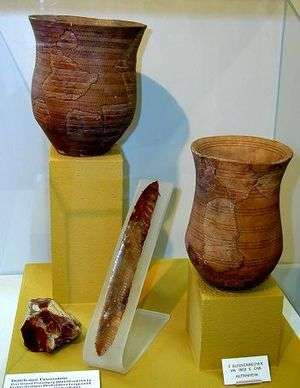Latest News for: culture history
Edit
African-Asian Union names Luxor ‘First World Capital of Culture, History and Heritage’
Egypt Independent 28 Jan 2025
Edit
Scans for the memories: why old games magazines are a vital source of cultural history ...
The Guardian 28 Jan 2025
As the Video Game History Foundation opens a new digitised archive, what can titles like Crash, Mega, Edge and GamesMaster tell us about the early days of gaming? ... Lacking the cultural gravitas of ...
Edit
Russian Seasons in Bahrain launches at Bahrain National Theatre
Bahrain News Agency 28 Jan 2025
Edit
Qatar-Oman cultural ties.. deep-rooted history, promising future prospects
Gulf-Times 28 Jan 2025
... toward broader horizons to be a quintessential collaboration on cultural work, stemming from the joint history and bolstering the strategy of cultural collaboration between the two countries.
Edit
Guest Opinion: China's Spring Festival -- a UNESCO Intangible Cultural Heritage and a means of cultural exchange
Xinhua 28 Jan 2025
Edit
Hopewell: City selected to receive over $370K for Shiloh Lodge preservation
Progress Index 28 Jan 2025
Edit
Lion, dragon dances staged in Cambodia to celebrate Chinese New Year
China.dot.org 28 Jan 2025
Spring Festival, social practices of the Chinese people in celebration of the traditional New Year, was inscribed on UNESCO's representative list of the intangible cultural heritage of humanity on Dec.
Edit
Terracotta Warriors welcoming Chinese New Year with extended hours, more tickets
Urdu Point 28 Jan 2025
Edit
 The Lancaster News
28 Jan 2025
The Lancaster News
28 Jan 2025
Musicology symposium at African American center
 The Lancaster News
28 Jan 2025
The Lancaster News
28 Jan 2025
The African American Cultural Center of Camden will start Black History Month by hosting a “Let’s Talk About” symposium this Saturday (Feb ... in the cultural context, and how that has changed over time.
Edit
Riverside Luxury Cruises expands North American Sales and Marketing team
TravelDailyNews 28 Jan 2025
Edit
 St Albans Messenger
28 Jan 2025
St Albans Messenger
28 Jan 2025
Mississippi Department of Education Approves Savvas Learning Company's Full Line of Math and Social Studies ...
 St Albans Messenger
28 Jan 2025
St Albans Messenger
28 Jan 2025
Unique Mississippi myWorld Interactive course engages students to explore the state's rich history and culture ....
Edit
Your Ultimate 7-Day Guide To Vietnam: Cities, Cuisine And Countryside Charm
News18 28 Jan 2025
Vietnam, a vibrant Southeast Asian nation, is celebrated for its rich history, stunning scenery and diverse culture ... .
Edit
NUSTAR Resort Cebu celebrates the Year of the Wood Snake with festive offers and celebrations
The Philadelphia Inquirer 28 Jan 2025
... Universal Cultural Foundation, Inc ... This unique presentation will delve into the fascinating history of fireworks, a […]...
- 1
- 2
- Next page »


